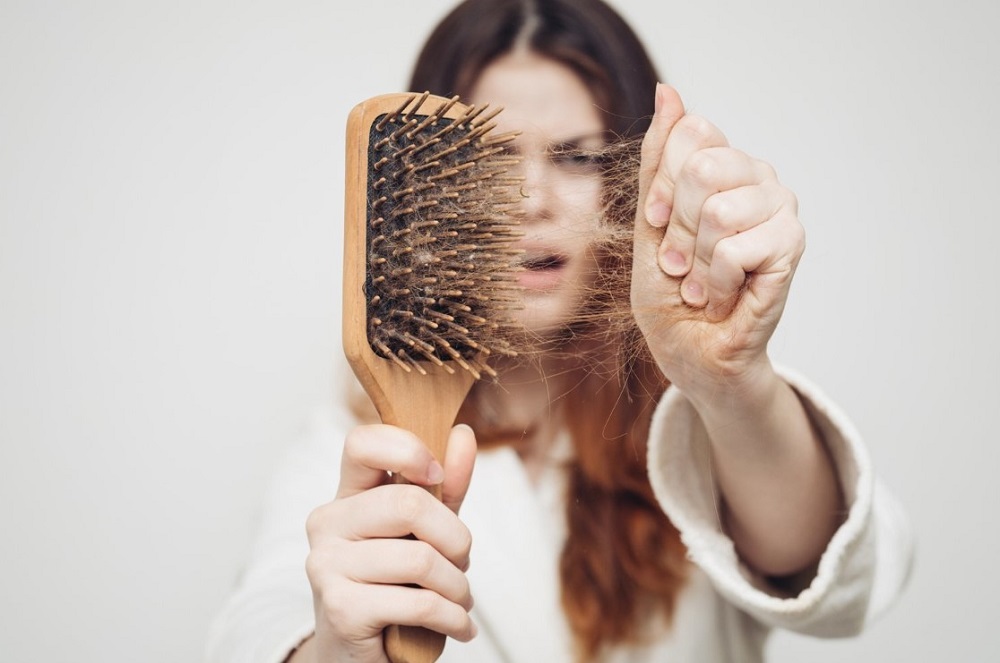Are you losing chunks of your hair daily? Well, one reason could be diabetes if you have it. But does diabetes cause hair loss? That is our question of the day.
Hair loss is an emotionally distressed phase in any woman’s life (or a man’s.) We gasp at the hair chunks in the combs and on the pillows and try to search for potential causes behind it.
After all, your whole personality depends majorly on how good your hair looks.
Among many health conditions linked to hair loss, diabetes is often a subject of concern. Let’s try to answer the question: does diabetes cause hair loss? While we are at that, let’s explore ways to manage hair loss effectively.
Does Diabetes Cause Hair Loss? Understand the Science!
Hair loss can evoke feelings of insecurity, self-consciousness, and frustration. It can be a noticeable and sometimes disheartening physical change.
But does diabetes have a role to play in this? Let’s find out.
To understand the relationship between diabetes and hair loss, we must first comprehend how hair grows. Hair goes through a cycle of growth, rest, and shedding. The hair follicles play a crucial role in this process.
Hair loss occurs when the cycle gets disrupted, and more hair is lost than regrown.
Diabetes and Hair Loss – The Connection
While diabetes itself is not a direct cause of hair loss, it can contribute to the problem through several mechanisms:
Blood Sugar Fluctuations
Uncontrolled diabetes can lead to significant fluctuations in blood sugar levels.
These fluctuations can affect the blood vessels that nourish the hair follicles, making it difficult for them to function optimally.
Hormonal Imbalance
Diabetes can lead to hormonal imbalances, specifically an increase in androgens (male hormones) in both men and women.
Studies show elevated androgen levels can shrink hair follicles, causing hair to become thinner and more brittle.
Inflammation
Diabetes is associated with chronic inflammation, which can damage hair follicles and interfere with their ability to produce hair.
Suggested Read: How Diabetes in Different in Women than Men?
Reduced Blood Flow
High blood sugar levels can damage blood vessels, potentially reducing blood flow to the scalp. Poor blood circulation can weaken hair follicles, leading to hair loss.
Several studies have examined the link between diabetes and hair loss. A study found that individuals with diabetes had a higher prevalence of androgenetic alopecia (male or female pattern baldness) than those without diabetes.
Another study suggested that uncontrolled diabetes is associated with a higher risk of developing alopecia areata, an autoimmune hair loss condition.
Doctor Recommendation: Dr. Muhammad Umer Sheikh is one of the best general physicians in Lahore. With an experience spanning over eleven years, he is well-trained and knowledgeable to treat various health issues by managing the root cause. You can consult him for all your diabetes-related health issues.
Tips for Managing Hair Loss Due to Diabetes
If you have diabetes, you must know the effective ways to manage hair loss and keep your locks heavy and shiny. Here’s what you should do:
Control Blood Sugar Levels
The primary step in managing hair loss due to diabetes is controlling your blood sugar levels.
Regular monitoring and adherence to your diabetes management plan, which may include medication or insulin, can help stabilize blood sugar levels and reduce their adverse effects on hair follicles.
Balanced Diet
A well-balanced diet is crucial for managing diabetes and promoting hair health.
Include a variety of nutrient-rich foods like fruits, vegetables, whole grains, lean proteins, and healthy fats.
Pay special attention to foods rich in vitamins and minerals like biotin, zinc, and iron for hair growth.
Suggested Read: Biotin Benefits for Hair
Stress Management
Chronic stress can exacerbate diabetes and contribute to hair loss.
Stress-reduction techniques like meditation, deep breathing exercises, and yoga can reduce stress. Moreover, you can also engage in hobbies that help you relax and unwind.
Maintain a Healthy Weight
Being overweight or obese can worsen diabetes and increase the risk of hair loss.
Achieving and maintaining a healthy weight through diet and exercise can improve diabetes management and promote hair health.
Hair Care Routine
Implement a gentle hair care routine to prevent further damage. Avoid harsh chemicals, excessive heat styling, and tight hairstyles that can stress the hair follicles.
Use mild shampoos and conditioners suitable for your hair type.
Scalp Care
Pay attention to your scalp health. Massaging your scalp can improve blood circulation to the hair follicles, promoting hair growth.
You can also use specialized products containing ingredients like minoxidil or ketoconazole, which are known to stimulate hair growth.
Care is Just One Click Away with Healthwire!
While diabetes is not a direct cause of hair loss, its impact on blood sugar levels, hormonal balance, inflammation, and blood circulation can contribute to the problem.
The good news is that by managing your diabetes and implementing healthy lifestyle practices, you can reduce the risk of hair loss.
If you experience significant hair loss, consulting a qualified general physician is crucial. They can help you understand what’s going on and which treatment would be best for your situation.
Go on Healthwire’s website to book an appointment with the best general physcian of your choice.
